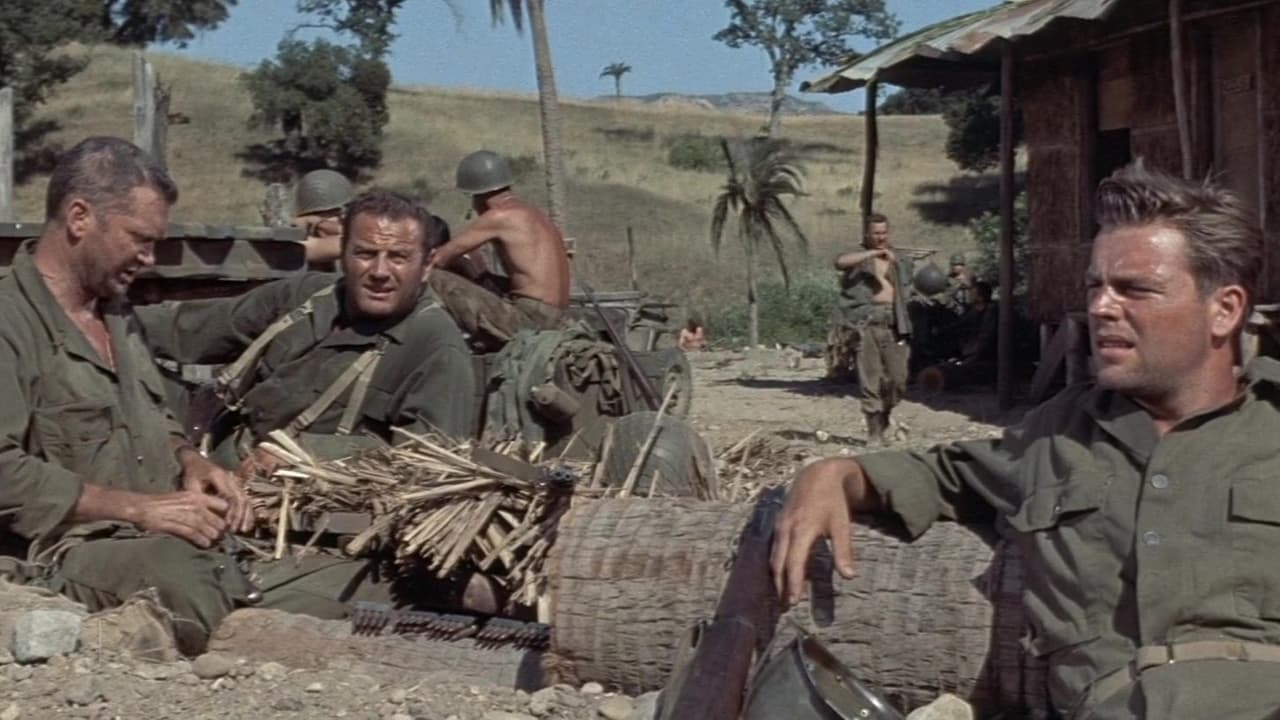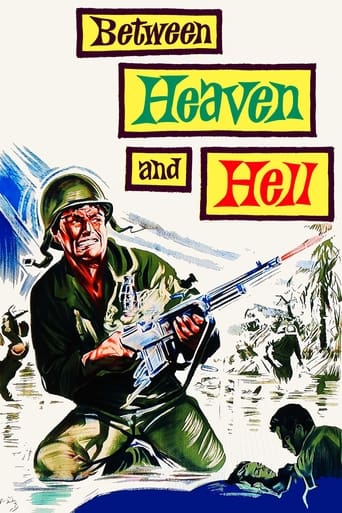

Why so much hype?
... View MoreIt is interesting even when nothing much happens, which is for most of its 3-hour running time. Read full review
... View MoreEasily the biggest piece of Right wing non sense propaganda I ever saw.
... View MoreIt's easily one of the freshest, sharpest and most enjoyable films of this year.
... View MoreAnother reviewer said it best when he called this film 'unpretentious'. Today, of course, most films are pretentious and overblown. Maybe it's because we now live in a pretentious and overblown country, one where people would never listen to the message of a movie like this.This is one of those rare occurrences where a movie is so well done it seems to exist outside its era. This film was made in 1956, which is amazing, considering the outstanding photography and the striking characterizations. Nobody talks or acts like '50s characters. Things seem a little more dangerous, more savage, so that it would seem you were watching a film from the '80s instead. Of course, in the '80s they didn't make movies like this, they made pretentious ones. But they should have.The big war films of the '50s were usually full of stock characters and unlikely situations, crammed with out of place stock footage. An example of that kind of mediocre war movie is 'To Hell And Back'. This movie is everything that 'To Hell And Back' was not. 'Between Heaven And Hell' has more interesting and unique characters, more authentic weaponry, and the photography is of a much higher standard.The reasons why some rather dull movies become well known, while others, like this, remain obscure, has always been a mystery to me.
... View MoreThe location of what's directly Between Heaven and Hell is the Pacific Theater during World War II. Robert Wagner, recently a sergeant, but busted down for striking an officer, gets himself transferred to a new outfit. He's now in a company in a forward position on a remote Pacific Island where the outcome is still in doubt. There's one crazy captain in charge played by Broderick Crawford. He's a bit combat happy to say the least.Wagner was a spoiled rich kid who married the boss's daughter, Terry Moore, and he's pretty hard on the sharecroppers he manages. That all changes for Wagner during his service in the Pacific where his national guard outfit is now serving and he's with a lot of these same people and his life depends on them and they, him. He gets to reevaluate a whole lot of what he had believed before.Between Heaven and Hell is a no compromising look at the Pacific War and the men who fought it. Wagner does well in the lead role, but acting honors go to Broderick Crawford as the captain who's bucking for a section 8. When he does get relieved, note the interesting suicide by sniper scenario he sets up for himself. Also Buddy Ebsen plays a very similar role to the one he played in Attack which also came out in the same year. Ebsen plays one of the sharecroppers who Wagner previously looked down on. Ebsen was staging something of a comeback himself, he would soon be cast in Walt Disney's Davy Crockett and then in The Beverly Hillbillies. Some of those comic parts make us forget what a fine dramatic actor Ebsen could be. He just wasn't given the chance often enough.For those who like their war pictures with a minimum of flag waving, Between Heaven and Hell is definitely for you.
... View MoreComposer Hugo Friedhofer, Oscar winner for The Best Years Of Our Lives(1946) turns in one of his finest scores in this unpretentious war film with a surprisingly focused performance by Robert Wagner. This, along with A Kiss Before Dying (also 1956) represents the best work Wagner did while a contract player at Fox. The music score uses the old "Dies Irae" motif to excellent effect, and Friedhofer's ingeneous way of rephrasing and reharmonizing this simple chant earned him a well deserved Oscar nomination. This story also addresses some issues like friendly fire, in the war scenes and issues of class and privilege on the home front.The dramatic tension created by the contrast between the battlefield and flashbacks to the Wagner character's home life is stunningly reflected by the music. They just don't write scores like this anymore, and they don't make unpretentious war movies anymore. Nowdays, everything has to be an $200 million spectacle.This film, with it's great supporting cast that includes Buddy Ebsen, Harvey Lembeck, LQ Jones and Brad Dexter, reflects what was good about the old studio system.Fox made these kind of movies better than any other studio- also check out The Desert Rats (1953). In Love And War( 1957) and The Young Lions (1958) are both great Friedhofer scores; then there'sZanuck's masterpiece, The Longest Day (1962) also starring Robert Wagner.This score represents Hugo Friedhofer at the height of his creative powers at a time when his work at Fox was very prolific. His last major score was One-Eyed Jacks (1961) and he is largely a forgotten figure today.
... View MoreBefore he started making huge, bloated, disastrously money-losing films in the '60s (Dr. Doolittle, Che, et al.), director Richard Fleischer was responsible for some good, tight well-made little B pictures. "The Narrow Margin" and "Armored Car Robbery" in the early '50s were outstanding film-noir classics, made for very little money. Fleischer made this in the period between his low-budget black-and-white thrillers and his '60s monstrosities, and it's a good one. Robert Wagner is the callow, spoiled rich son of a Southern landowner whose National Guard unit is suddenly activated during World War II and sent to the Pacific to fight the Japanese. Wagner finds himself in the same company with the sharecroppers and tradespeople he scorned back home, and is sent to a base run by a power-mad, vengeful officer who treats his troops the same way Wagner treated his " 'croppers" back home.This is one of Wagner's better performances. Unlike many of his earlier films, Wagner doesn't try to get by on his good looks and youthful charm; he turns in a first-rate performance here, as do most of the cast. Broderick Crawford as Wagner's crazed commander doesn't quite fit the part, and Skip Homeier--usually a solid, reliable character actor--goes a bit overboard as one of Crawford's goons, but Buddy Ebsen, as one of Wagner's sharecroppers who turns out to be his best friend, L.Q. Jones and Tod Andrews are fine in pivotal parts, and Fleischer stages some exciting battle scenes. Altogether, a well-made, exciting little B picture from 20th Century Fox--a bit garish in Technicolor (black and white would have been more effective)--but well worth your time to see it. Highly recommended.
... View More